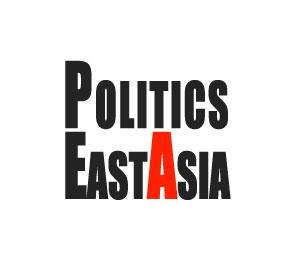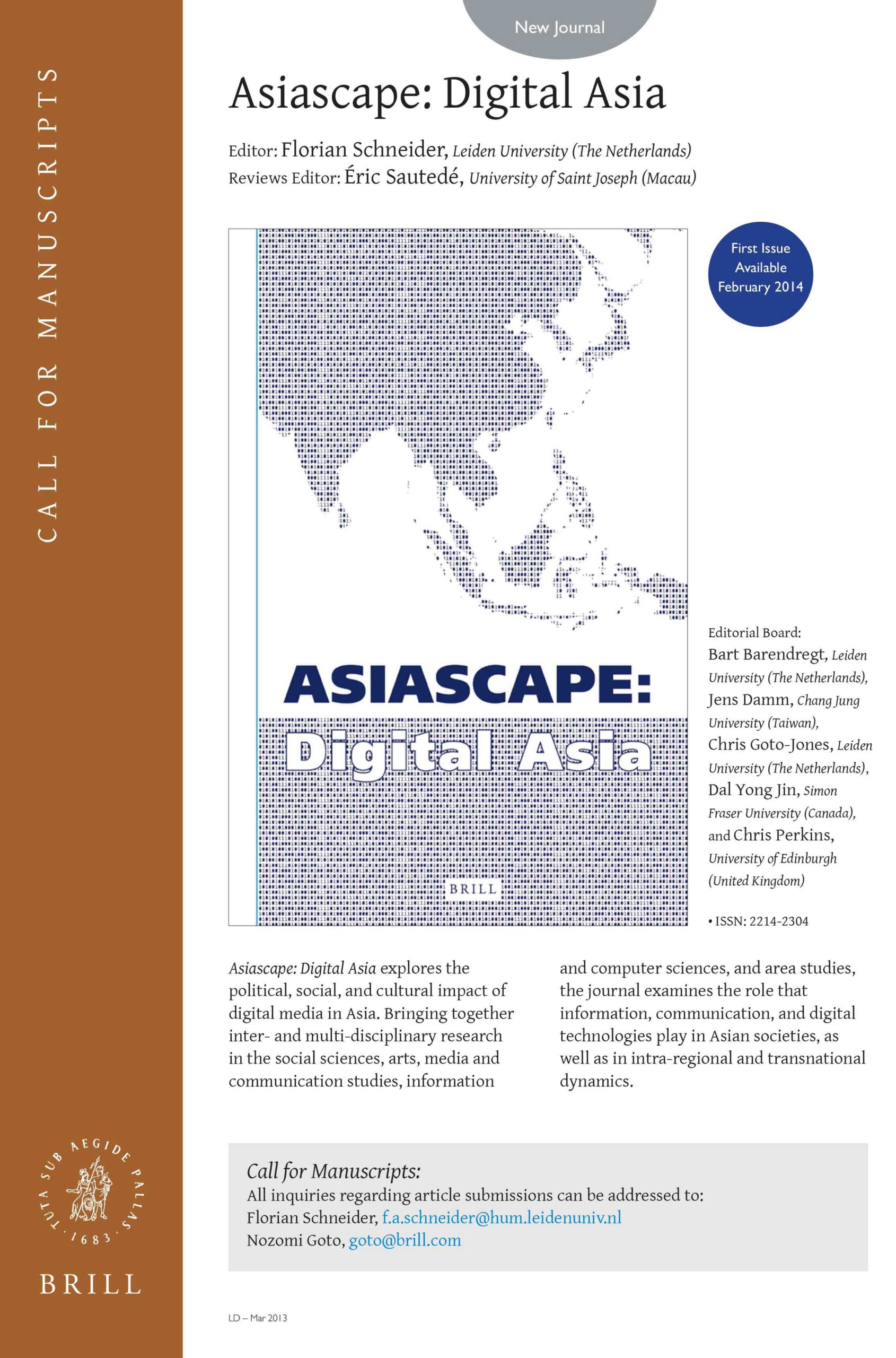The Challenge of Studying Digital Asia
An Introduction to Asiascape: Digital Asia
This blog-post first appeared on Asiascape.org.
In August and September 2012, the Internet was awash with Chinese, Taiwanese, and Japanese discussions over a set of islands in the East China Sea that the governments of all three nations lay claim to. The dispute has been a recurring issue in East Asian regional relations, but over the past decade more and more people have become “switched into” this seemingly classic-realist international relations topic through new information and communication technologies (ICTs).
As millions of bloggers and tweople followed the actions of activists and politicians, and as nationalist protests spilled into the streets in China and Japan, one post on the Chinese micro-blogging service Weibo inspired particularly heated discussions. Yet the post did not come from a politician or from an activist. It did not call for the burning of more flags, for boycotts of foreign goods, or for decisive military intervention. The post was a calligraphy that promoted the friendship between the people of China and Japan, and it had been sent by the Japanese porn star Sora Aoi.
With the speed that arguably only digital communication allows, the calligraphy travelled across the region, reaching over 13 million people. It received more than 140,000 comments – many derogatory, but many also critically discussing the conflict, as well as the meaning of national identity in 21st century East Asia.
This example is symptomatic of the challenges that established academic disciplines face as they explore developments in an increasingly interlinked region such as Asia. The ubiquity of digital ICT has fuelled processes that have always been complex and dynamic, but it has arguably never before played such a significant role in politics, economics, culture, and society.
Other examples from the region abound: In South Korea, online computer games have become so popular that individual matches are broadcasted on TV. In South Korea, Japan, and Taiwan, election campaigns are accompanied by online activism in the form of twitter and blogging, which in turn has inspired Taiwanese and South-Korean politicians to integrate new media content into their campaigns. In India, the government is building a controversial digital biometric database that will include personal information on over a billion citizens, allowing for unprecedented experiments in e-governance. The People’s Republic of China now has more “netizens” than the European Union has citizens, prompting Chinese companies to create native search engines, social networking sites, micro-blogging services, and operating systems – always within the restrictions that the authorities impose on the highly regulated Chinese net. Meanwhile, smartphones are quickly gaining popularity in Southeast Asia, and may well overtake broadband internet as the main means by which citizens from Myanmar to Indonesia link up with global information networks. Many politicians and public figures now maintain their own digital networks with constituents and fans, and ICT companies are eagerly looking to these growing markets to test technological innovations.
What is needed to understand these processes is innovative, transdisciplinary research that has the courage to take the complexity of the information age seriously, and that does not shy away from exploring the diverse realities in which this complexity plays out. Asiascape: Digital Asia provides a forum for such research. Its contributions examine what impact new technologies, new channels of communication, and the unprecedented convergence of media formats have in the Asian context.
With its peer-reviewed in-depth analyses, Asiascape: Digital Asia will keep readers abreast of such developments in the cyber cultures and digital networks of Asia. It will further provide book reviews, specifically aiming to introduce non-Asian related works and scholars to the area-studies community, and research on Asia to the larger field of digital media and communication studies. In addition, Asiascape: Digital Asia reviews relevant conferences, and includes a digital media review, which focuses on digital platforms and media products from Asia, such as blog and twitter services, social media websites, video sharing services, games, digital tools, etc.
If you are a scholar conducting research on the digital processes that shape Asia, and if your focus lies with the social sciences, arts, media and communication studies, information and computer sciences, or area studies, then we invite you to consider Asiascape: Digital Asia as the outlet for your work. The journal will launch in early 2014, and will be published bi-annually. Take a look at our call for papers for more information.
If you have a paper you would like to submit to Asiascape: Digital Asia for consideration, please make use of our digital editorial manager.
Share This Post, Choose Your Platform!
4 Comments
Comments are closed.



[…] more […]
[…] academic journal Asiascape – Digital Asia (DIAS), in collaboration with the Goto-Jones VICI project “Beyond Utopia” funded by the […]
[…] Like any interdisciplinary endeavour, studying digital communication in Asia can be challenging: not only does such work have to convince area specialists, it also has to connect with research across different disciplines, such as anthropology, economics, political science, media studies, or the computer sciences. About a year ago, several of my colleagues and I discussed how we could create a platform for those who are taking on that challenge. We decided that we needed a new academic journal, and that the work that we would showcase there should also be accompanied by events and discussions, both online and offline. As a result, we are launching the first issue of our new journal Asiascape: Digital Asia this March, and in the run-up to that launch we organized an international conference at Leiden University to discuss what it means to be part of the digital turn in Asian studies. […]
[…] techno-Orientalist dystopias (cf. the critiques in Lewis 2010: 46 and Ueno 1996, respectively). Studying ‘Digital Asia’ therefore also means critically engaging with such fantasies of hyper-dynamic Asian techno […]